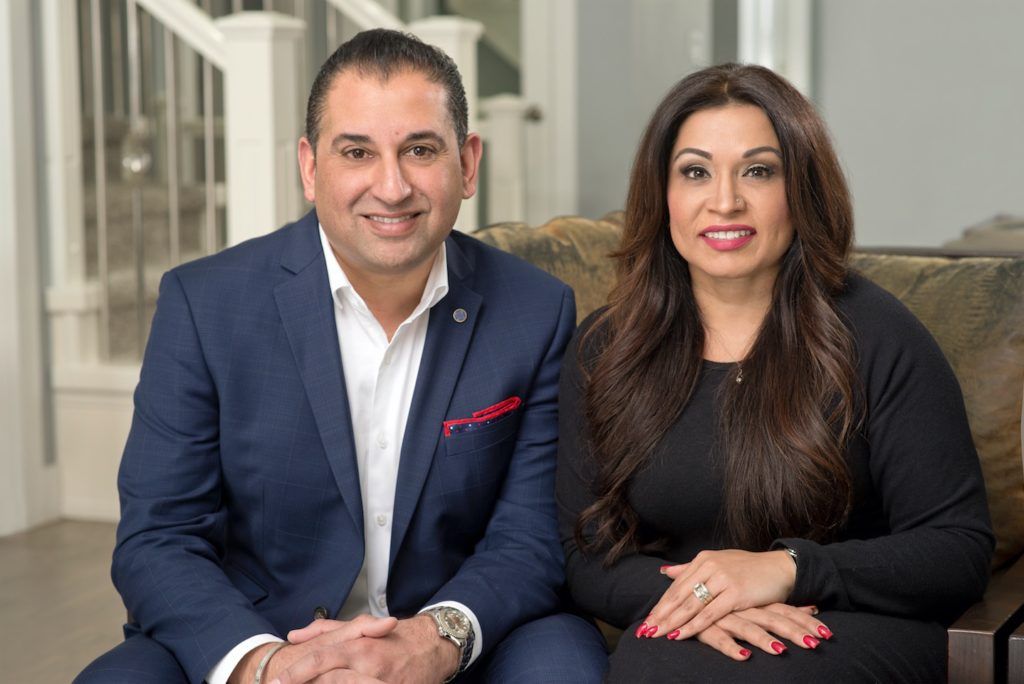Planning Ahead to Get the Best Terms on Renewal!
Team Gill • March 2, 2021

If your mortgage term is almost up for renewal, there’s a good chance you’ll be pleasantly surprised with the low-interest rates available on the market today. While the pandemic has caused a lot of economic uncertainty, the result has been very low interest rates. In fact, the Government of Canada has indicated that rates will most likely stay low until 2023.
So if your mortgage is up for renewal in the next 6 months, here’s what you should do.
Start now. Yep, right now.
Getting ahead of your renewal is one of the most important things you can do. This will ensure that you don’t get busy, forget about the deadline, and have to make a rush decision. Or worse yet, your mortgage won't renew into a product you didn’t choose for yourself. You’ll want to weigh your options and make the best choice for you. This can take time. So start now.
One of the benefits of reviewing your renewal with an independent mortgage professional is saving hours of research. We deal with mortgage financing daily; our job is to keep up with all the lenders and their products and provide you with professional advice.
Please connect with us to discuss your renewal. We’d be more than happy to outline all your options.
Don’t sign your lender’s renewal offer.
If you’ve already received a renewal letter from your current lender, the last thing you want to do is just select the term with the lowest rate, sign it, and send it back. You have more options than this.
Renewal documents will showcase rates and products that are good for the lender, not necessarily for you. Mortgage lenders are in the business of making money, and as close to half of people sign their initial renewal offer without negotiating a better rate, lenders don’t feel they have to put their best offer forward. In fact, they make more money by doing the exact opposite.
Just because your current lender was the best choice when you got your last mortgage doesn't mean they're still the best choice now. Make sure to consider all your options, not just the options in front of you. Let’s talk.
Don’t get stuck on the rate.
Modern consumerism has us conditioned to believe that the lowest price is always the best. And although this might be the case when buying stuff at the thrift store, it certainly isn’t when considering mortgage financing. Interest rate is only one thing you should consider when renewing your mortgage.
Your goal should be to assess the quality of your next term by how much it lowers your overall cost of borrowing. Life is full of changes; you’ll want to ensure the features of your mortgage, such as term length, mortgage type, penalties, portability, and prepayment privileges, all line up with your goals. The lowest rate mortgage doesn’t always come with the most flexible terms. And sometimes, it makes sense to take a higher rate for better terms. Professional advice will help a lot as you make your decision.
So there you have it. If your mortgage is up for renewal anytime in the next six months, please contact us directly. Let's work together to secure the best mortgage for you.
Share
Sign up to to our newsletter to hear weekly updates on market news, timely buyer/seller tips, and up to date rates
Mick & Sheila Gill
CANADIAN MORTGAGE EXPERTS

RECENT POSTS

What Is a Second Mortgage, Really? (It’s Not What Most People Think) If you’ve heard the term “second mortgage” and assumed it refers to the next mortgage you take out after your first one ends, you’re not alone. It’s a common misconception—but the reality is a bit different. A second mortgage isn’t about the order of mortgages over time. It’s actually about the number of loans secured against a single property —at the same time. So, What Exactly Is a Second Mortgage? When you first buy a home, your mortgage is registered on the property in first position . This simply means your lender has the primary legal claim to your property if you ever sell it or default. A second mortgage is another loan that’s added on top of your existing mortgage. It’s registered in second position , meaning the lender only gets paid out after the first mortgage is settled. If you sell your home, any proceeds go toward paying off the first mortgage first, then the second one, and any remaining equity is yours. It’s important to note: You still keep your original mortgage and keep making payments on it —the second mortgage is an entirely separate agreement layered on top. Why Would Anyone Take Out a Second Mortgage? There are a few good reasons homeowners choose this route: You want to tap into your home equity without refinancing your existing mortgage. Your current mortgage has great terms (like a low interest rate), and breaking it would trigger hefty penalties. You need access to funds quickly , and a second mortgage is faster and more flexible than refinancing. One common use? Debt consolidation . If you’re juggling high-interest credit card or personal loan debt, a second mortgage can help reduce your overall interest costs and improve monthly cash flow. Is a Second Mortgage Right for You? A second mortgage can be a smart solution in the right situation—but it’s not always the best move. It depends on your current mortgage terms, your equity, and your financial goals. If you’re curious about how a second mortgage could work for your situation—or if you’re considering your options to improve cash flow or access equity—let’s talk. I’d be happy to walk you through it and help you explore the right path forward. Reach out anytime—we’ll figure it out together.

Going Through a Separation? Here’s What You Need to Know About Your Mortgage Separation or divorce can be one of life’s most stressful transitions—and when real estate is involved, the financial side of things can get complicated fast. If you and your partner own a home together, figuring out what happens next with your mortgage is a critical step in moving forward. Here’s what you need to know: You’re Still Responsible for Mortgage Payments Even if your relationship changes, your obligation to your mortgage lender doesn’t. If your name is on the mortgage, you’re fully responsible for making sure payments continue. Missed payments can lead to penalties, damage your credit, or even put your home at risk of foreclosure. If you relied on your partner to handle payments during the relationship, now is the time to take a proactive role. Contact your lender directly to confirm everything is on track. Breaking or Changing Your Mortgage Comes With Costs Dividing your finances might mean refinancing, removing someone from the title, or selling the home. All of these options come with potential legal fees, appraisal costs, and mortgage penalties—especially if you’re mid-term with a fixed-rate mortgage. Before making any decisions, speak with your lender to get a clear picture of the potential costs. This info can be helpful when finalizing your separation agreement. Legal Status Affects Financing If you're applying for a new mortgage after a separation, lenders will want to see official documentation—like a signed separation agreement or divorce decree. These documents help the lender assess any ongoing financial obligations like child or spousal support, which may impact your ability to qualify. No paperwork yet? Expect delays and added scrutiny in the mortgage process until everything is finalized. Qualifying on One Income Can Be Tougher Many couples qualify for mortgages based on combined income. After a separation, your borrowing power may decrease if you're now applying solo. This can affect your ability to buy a new home or stay in the one you currently own. A mortgage professional can help you reassess your financial picture and identify options that make sense for your situation—whether that means buying on your own, co-signing with a family member, or exploring government programs. Buying Out Your Partner? You May Have Extra Flexibility In cases where one person wants to stay in the home, lenders may offer special flexibility. Unlike traditional refinancing, which typically caps borrowing at 80% of the home’s value, a “spousal buyout” may allow you to access up to 95%—making it easier to compensate your former partner and retain the home. This option is especially useful for families looking to minimize disruption for children or maintain community ties. You Don’t Have to Figure It Out Alone Separation is never simple—but with the right support, you can move forward with clarity and confidence. Whether you’re keeping the home, selling, or starting fresh, working with a mortgage professional can help you understand your options and create a strategy that aligns with your new goals. Let’s talk through your situation and explore the best path forward. I’m here to help.

